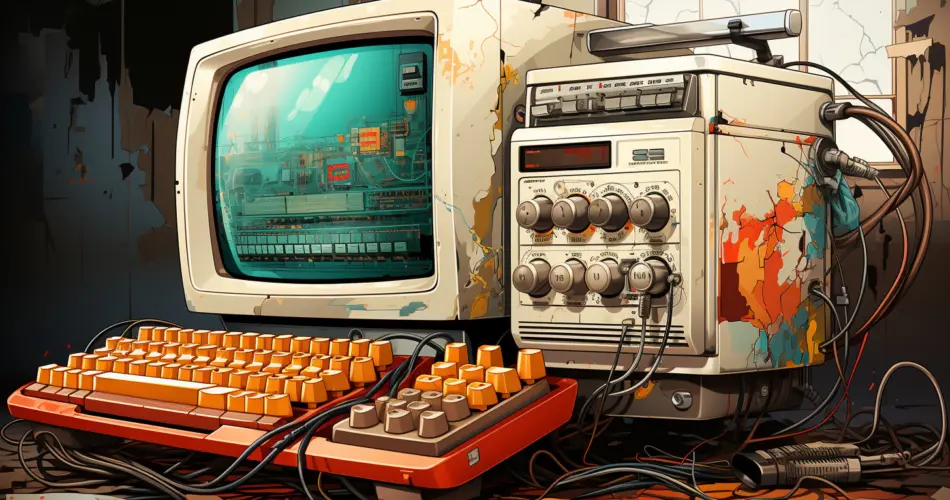If you are like most people without deep exposure to cybersecurity or a thorough understanding of technology, your views on hackers might be heavily influenced by media portrayals. You’ve probably read news reports about Edward Snowden or seen movies that depict hackers as menacing figures shrouded in mystery, lurking behind computer screens in dimly lit rooms. The reality, however, is much more nuanced.
Hackers exist everywhere, both online and offline, and many of them are just average people. Of the estimated 18 million developers in the world, a substantial number could be considered hackers. It is important to understand that a hacker is generally just a technologist who enjoys pushing the boundaries of hardware and software. Not all hackers engage in black hat activities; in fact, many of them contribute positively to the tech community by improving security and developing innovative solutions.
The Early Days of Hacking
Cyber hacking has its roots long before the internet became mainstream, originating from the exploration and manipulation of telecommunication systems. Early hackers, known as “phreaks,” would manipulate telecom systems to make long-distance calls without charge. This early form of hacking was both a necessity and a hobby for these pioneers. They used their skills to steal access codes, which served as a form of currency among them. This era of hacking was characterized by a spirit of exploration and ingenuity, traits that continue to define the hacker community today.
Kevin Mitnick: The Face of Phreaking
One of the most famous hackers from the phreaking era is Kevin “Darkside” Mitnick. He gained notoriety in the 1990s for his abilities to infiltrate and manipulate telecommunications. Mitnick’s exploits included penetrating systems of major corporations like Novell and Sun Microsystems, and even spying on FBI phone calls. His activities, driven by a desire for the thrill rather than financial gain, played a significant role in shaping public perception of hackers and drove legislative efforts to criminalize cyber activities.
From Phreaking to the Internet
As technology evolved, so did hacking. The advent of the internet allowed hackers to communicate more effectively and share knowledge through bulletin board systems and Internet Relay Chat (IRC). IRC, akin to modern-day instant messaging, became a hub for hackers to exchange ideas and collaborate on projects. This period saw the rise of “elite” hackers, those who had a deep understanding of technology and could communicate in “31337-speak” to obfuscate their conversations from prying eyes. This culture of elite hacking continues to influence hacker communities today.
The Spectrum of Motives
Today’s hackers are driven by a variety of motives, from financial gain to political activism. Many operate under the banner of hacker groups or “secs,” which provide a sense of community and shared purpose. Some of the most notorious groups include Anonymous, known for its decentralized structure and vigilante activities, and Lizard Squad, infamous for disrupting gaming networks. These groups often blur the lines between white hat (ethical hacking) and black hat (malicious hacking) activities, operating in a complex landscape of motivations and ethics.
Social Engineering: The Human Factor
A significant aspect of modern hacking involves social engineering, which leverages psychological manipulation to gain access to confidential information. This tactic highlights the importance of understanding human behavior as much as technological systems. Hackers use social engineering to exploit the weakest link in security—people. From phishing attacks to impersonation, these methods underscore the need for comprehensive security training and awareness.
Conclusion: The Ubiquity of Hackers
Hackers are everywhere, and they come in many forms. From the early phreaks who manipulated telecom systems to modern-day hackers who navigate complex digital landscapes, the world of hacking is vast and varied. Understanding this reality is crucial for anyone involved in technology and security. As you navigate this landscape, remember that not all hackers are out to cause harm; many are working tirelessly to make our digital world a safer place.
The next time you read a headline about a hacker or see a portrayal of one in the media, think about the rich history and diverse motivations that define this community. Hackers are not just shadows lurking in the dark; they are innovators, problem solvers, and yes, sometimes even heroes in the ongoing battle for cybersecurity.
Get the latest posts delivered to your inbox
